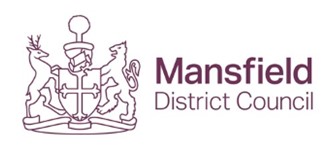Welcome to the latest edition of the D2N2 Economic Recovery Report.
This report pulls together information from across the region to understand the impacts of Covid-19 on our economy.
A PDF version of this D2N2 Economic Recovery Report is available for download here.
This latest report focuses on several key areas:
For previous editions of the D2N2 Economic Recovery Report, please visit here.
1. D2N2 ECONOMIC RISK AND RECOVERY
We track several high-level indicators to give a snapshot of the D2N2 area’s progress towards recovery. A brief overview of monthly or higher frequency indicators at a local level are available below.

Coronavirus Job Retention Scheme (CJRS), which supports employers in paying their employees furloughed from 1 March 2020, has seen a decrease in claims in May 2021 with a total of 95,600 D2N2 jobs supported through the scheme. The main sectors remain accommodation and food services, and wholesale and retail trade – accounting for 45% of all claims.
Self-Employment Income Support Scheme (SEISS) provides support for self-employed individuals whose business has been adversely affected by Covid-19 through a series of grants. The number of claims received up to 9 May 2021 (totalling 45,500) is lower compared to January 2021[1]. A third of all claims were in the Construction sector. A more detailed analysis of the latest CJRS and SEISS data will be available here.
Unemployment and work-related benefit claims continues to follow a slow recovery path decreasing by 10.0% from the May 2020 peak and the most recent data for May 2021. Nationally, the claimant count has decreased by 5.9% over the same period. In May 2021, the D2N2 claimant count was at 73,250 compared to 81,370 last May. Claimants as a percentage of the working age population are 5.3% in D2N2 compared to 6.0% nationally. A more detailed analysis of the latest claimant count data is available here.
Job vacancies have recovered since last year’s lows and April’s figures show a 59.4% increase from May 2020 levels, compared to a 39.8% increase nationally. The number of job vacancies in D2N2 now exceeds the number of unemployment claimants.
Notifications of redundancies (HR1)[2] are significantly lower compared to the levels seen in June, July and November 2020. In May 2021, manufacturing continues to account for a large proportion of notifications, followed by education and professional, scientific and technical activities. Nationally in April 2021 the sectors with most notifications of redundancies were manufacturing, financial and insurance activities, and education.
HR1 notifications by sector and month in D2N2

D2N2 workplace activity in June was around 25% below the pre-pandemic baseline[1], according to Google mobility data for D2N2, which has been trending upwards since January. At the end of May, visits to retail and recreation locations has exceeded the baseline levels for the first time since August 2020 and is currently slightly below the baseline levels (-3%).
Workplace mobility trends in D2N2, Google

Retail and Recreation mobility trends in D2N2, Google

Negative impact of Covid-19 on ambitious businesses has decreased over time. Beauhurst estimate that, as of June 1st, around 1.9% of businesses in D2N2 are still facing a high level of risk whilst 34.2% potentially expect a positive outcome. Nationally a slightly higher proportion of ambitious businesses are experiencing high levels of risk (2.8%) and a lower percentage are potentially expecting positive outcomes (31.0%).
Covid-19 business impact over time in D2N2, Beauhurst

Estimates of Covid-19 impact based on national surveys
In collaboration with Nottingham Trent University and the University of Nottingham, D2N2 LEP has published an online tool showing quarterly estimates of private sector employment, sales and investment at local authority level based on Decision Maker Panel (DMP)[1] and Business Register and Employment Survey (BRES).
The estimates show that in Q2 2021 private sector employment, sales and capital expenditure are below the levels expected without the impact of Covid-19 by 6.5%, 10.2% and 12.6%, respectively. These indicators are not expected to fully recover until after 2022.
According to the estimates, D2N2 areas impacted more than the average in terms of private sector jobs are likely to be Derbyshire Dales, Newark and Sherwood, High Peak, Mansfield, Nottingham, Erewash and Gedling.

2. LINKS TO DATA ON D2N2
D2N2 maintains a number of datasets to help inform decision making.
Our D2N2 Economy Dashboard summarises key monthly and medium term trends from official data, together with trend data from Google Mobility and provides a forward look at potential trends in sales, employment and investment based on the findings of the Decision Makers’ Panel. Each page shows a D2N2 perspective and can be filtered down to district level.
Other dashboards that are regularly maintained include:
- Claimant count tracker
- Furlough tracker
- Analysis of occupations and vacancies
- Economic Impact of Covid-19 on Local Authorities
Historic dashboards – no updates planned:
- Jobs regarded as teleworkable during Covid-19 lockdown
- Growth Hub survey data 2020
- Key data on Towns Fund areas 2020
- Apprenticeships in 2020
- Labour Market Dashboard
Data on D2N2:
Midlands Engine Observatory :
[1] Claims for the third SEISS grant received up to 31st January 2021. Claims for the fourth grant were opened on 22 April 2021 and the data release covers claims submitted up to May 9th.
[2] HR1 form is a redundancy notification which must be completed when an employer proposes making twenty or more employees redundant. It is used to inform the Redundancy Payments Service of potential redundancies within the business. The data were shared by CLGU with strict non-disclosure requirements, which is why the actual numbers are not displayed on the provided chart.
[3] The baseline is the median value, for the corresponding day of the week, during the five week period 3 Jan – 6 Feb 2020.
[4] The DMP is a monthly survey of Financial Officers from small, medium and large UK businesses that is used to monitor developments in the economy and to track businesses’ views. With over 9,000 executives from UK SMEs and large companies from a broad range of industries participating in the study, the panel is designed to be representative of the UK business population, excluding a small number of sectors. Data are based on responses to the question: “Relative to what would have otherwise happened, what is your best estimate for the impact of the spread of coronavirus (Covid-19) on the sales/employment/capital expenditure of your business in 2020 Q2, 2020 Q3, 2020 Q4, 2021 Q1, 2021 Q2, 2021 Q3.





























